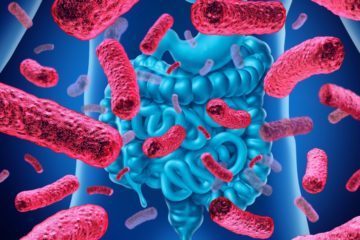Radek Vana in Inquiries:
 We are never alone. And by this statement, I do not intend to argue for existence of some supernatural entities, aliens or God. We are never alone because we all share our bodies with trillions of symbiotic microorganisms that perform various physiological functions crucial for our health. In fact, they may be responsible for even more than that. Here, I present a view that the symbiotic microbiota is an important part of the complex system constituting our consciousness. By consciousness, I mean the type called phenomenal consciousness (Block 2002) which stands for the subjective experience of what is it like to be someone (see Nagel 1974).
We are never alone. And by this statement, I do not intend to argue for existence of some supernatural entities, aliens or God. We are never alone because we all share our bodies with trillions of symbiotic microorganisms that perform various physiological functions crucial for our health. In fact, they may be responsible for even more than that. Here, I present a view that the symbiotic microbiota is an important part of the complex system constituting our consciousness. By consciousness, I mean the type called phenomenal consciousness (Block 2002) which stands for the subjective experience of what is it like to be someone (see Nagel 1974).
If we look at the contemporary literature on consciousness (e.g. Dehaene 2014; Northoff 2014; Graziano 2015; Feinberg and Mallatt 2017), we can see that the current trend in philosophy of mind is to focus on the role of the brain. This seems quite reasonable since for so long we thought that it is just the brain that creates our mind. However, new biological discoveries in the last decade suggest that we were wrong and there are also other actors at play with a causal impact on our mental states1.
In this paper, I first introduce the concept of holobiont and explain what it signifies for the study of consciousness. Next, I focus on the role of the brain-gut-microbiome axis and its importance for the future research in philosophy of mind. Then, I discuss whether the brain is a necessary condition for the existence of consciousness at all, and finally I conclude that our consciousness is our emergent property caused by the brain-gut-microbiome axis.
More here.
